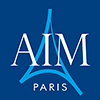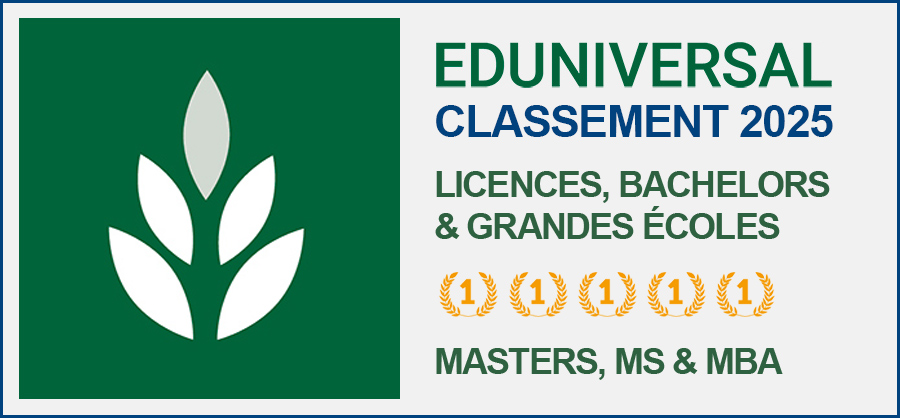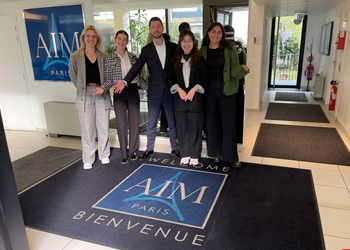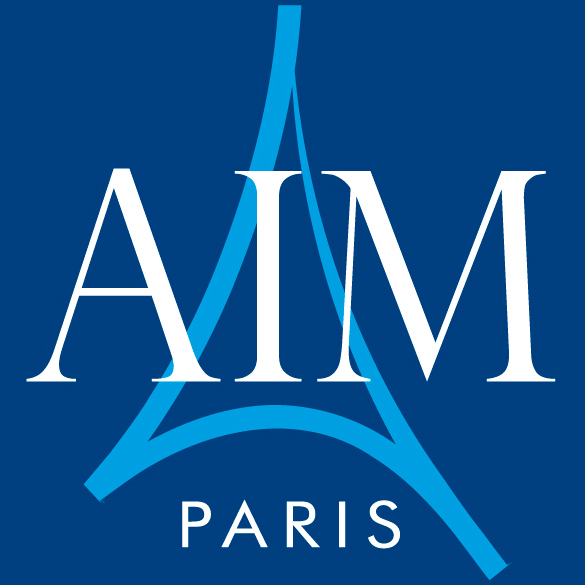Bachelor of Arts
Matières enseignées
MASTER OF SCIENCE 2

Feasibility and Valuations in Hospitality investments
Luxury Management
Managerial Accounting
Marketing & Entrepreneurial Development
Purchasing Management
Risk Management
Hospitality Talent Management
Revenue/ Yield Management
Business Plan Elaboration
International Management
Les cours avec certifications professionnelles
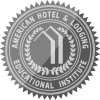
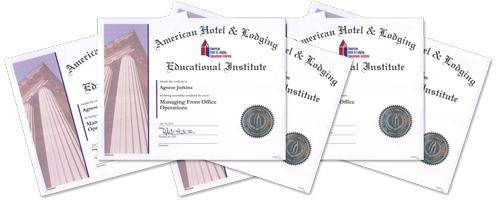
Bachelor of Arts
Le choix des matières et l’organisation des cours privilégient le développement des facultés d’analyse et de synthèse, qualités déterminantes pour l’apprentissage des procédés de décision dans un environnement d’une complexité croissante.
PÔLES D’EXPERTISES
AVEC CERTIFICATIONS PROFESSIONNELLES
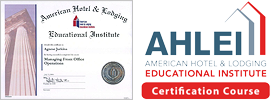
Applications dans l’industrie hôtelière les principaux modes de comptabilité financière.
SPÉCIALISATIONS
- Accounting for Business Transactions
- Financial Statements
- Corporate Accounting
Formation professionnelle destinée à tous ceux voulant exercer des responsabilités dans le domaine des Ressources Humaines au sein des grands hôtels.
SPÉCIALISATIONS
- Employment Laws and Applications
- Job Analysis and Job Design
- Planning and Recruiting
- Selection
- Training and Development
- Evaluating Employee Performance
- Negotiation and Collective Bargaining
- Turnover, Discipline, and Exits
Course Description:
This course provides students with practical skills and knowledge for effective management of food service operations. It presents basic service principles while emphasizing the importance of meeting and, whenever possible, exceeding the expectations of guests.
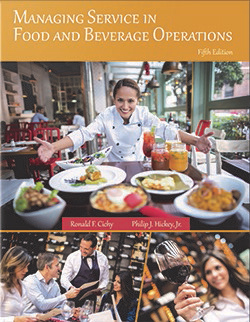
Objectives:
- Define “moments of truth” and identify staff members needed in a food service operation.
- Summarize typical restaurant server and busperson duties.
- List and discuss the tasks that banquet servers and room service attendants perform.
- Describe the duties of beverage servers and bartenders.
- Identify legal restrictions and liability issues affecting the service of alcoholic beverages.
- Explain how to tell when guests are intoxicated, and outline the steps to take when stopping alcohol service to them.
- Describe the importance of the menu to food service operations and explain how it is planned and designed.
- Identify procedures and issues involved with purchasing, receiving, storing, issuing, and controlling food service operation supplies and equipment.
- Summarize design, decor, and cleaning issues for food service operations.
- Describe the critical role of food sanitation in food and beverage operations, explain the HACCP concept of food safety, and discuss the role of staff members in ensuring food safety.
- Explain how food and beverage managers develop labor standards, forecast food and beverage sales, prepare work schedules, and analyze labor costs.
- Discuss revenue collection and control systems.
- Describe casual/theme restaurants and list examples of ways they give value to guests.
- Explain how banquets and catered events are sold, booked, planned, and executed.
- Discuss room service issues and summarize procedures for delivering room service.
- Describe on-site food service operations in the business and industry, health care, and college and university markets.
The Certification in Hotel Industry Analytics (CHIA), in cooperation with AHLEI, is the leading certification for undergraduate and graduate students, as well as professors, in Hospitality and Tourism programs. This recognition provides evidence of a thorough knowledge of the foundational metrics, definitions, formulas and methodologies that are used by the hotel industry. Recipients have proven that they can “do the math” and interpret the results. They have demonstrated an ability to analyze various types of hotel industry data and to make strategic inferences based upon that analysis. Certification also confirms a comprehensive understanding of benchmarking and performance reports that are used by industry professionals. Recipients have a grasp of the current landscape of the hotel industry, including relevant current events. Achieving this distinction announces that these students have a place among the best graduates in their profession and opens the doors to future career opportunities. Qualifying students receive a certificate of accomplishment. Their names and schools are listed on the American Hotel & Lodging Educational Institute (AHLEI) website and they can use the CHIA designation on their resume/CV and business cards.
CONTENT
The certification is based upon four core content areas:
- Hotel Industry Analytical Foundations
- Hotel Math Fundamentals – the metrics used by the Hotel Industry
- Property Level Benchmarking with STAR Reports
- Hotel Industry Performance Reports (Trends, P&L, Pipeline and Destination Reports)
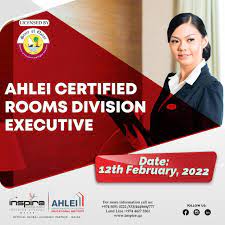
Course description:
This course presents a systematic approach to managing Rooms Department in large and luxury international hotels by detailing the flow of business from the reservations process to check-out and account settlement. The course also examines the various elements of effective Housekeeping Management, paying particular attention to the planning and Human Resources Management.
- Summarize front office operations during the four stages of the guest cycle.
- Discuss the sales dimension of the reservations process and identify the tools managers use to track and control reservations.
- List the seven steps of the registration process and discuss creative registration options.
- Identify typical service requests that guests make at the front desk.
- Explain important issues in developing and managing a security program.
- Describe the process of creating and maintaining front office accounts.
- Identify functions and procedures related to the check-out and account settlement process.
- Discuss typical cleaning responsibilities of the housekeeping department.
- Summarize the steps in the front office audit process.
- Apply the ratios and formulas managers use to forecast room availability.
- Explain the concept of revenue management and discuss how managers can maximize revenue by using forecast information in capacity management, discount allocation, and duration control.
- Identify the steps in effective hiring and orientation.
TOPICS
- The Lodging Industry
- Hotel Organization
- Front Office Operations
- Reservations
- Registration
- Front Office Responsibilities
- Security and the Lodging Industry
- Front Office Accounting
- Check-Out and Account Settlement
- The Role of Housekeeping in Hospitality Operations
- Planning and Organizing the Housekeeping Department
- The Front Office Audit
- Planning and Evaluating Operations
- Revenue Management
- Managing Human Resources
Course Description:
 This course is designed to provide students with a solid background in hospitality sales and marketing. The main focus is on practical sales techniques for selling to targeted markets.
This course is designed to provide students with a solid background in hospitality sales and marketing. The main focus is on practical sales techniques for selling to targeted markets.
Objectives:
At the completion of this course, students should be able to:
- Distinguish marketing from sales and identify trends that affect marketing and sales in the hospitality industry.
- Identify and describe the key steps of a marketing plan.
- Summarize the duties and responsibilities of positions typically found in a hotel marketing and sales office.
- Describe the five steps of a presentation sales call.
- Explain the basics of effective telephone communication and describe various types of outgoing and incoming telephone calls related to the marketing and sales function.
- Describe internal marketing and sales.
- Explain the role of advertising, public relations, and publicity in reaching prospective guests.
- Summarize how hospitality properties are meeting the needs of business travelers.
- Explain how hospitality properties are meeting the needs of leisure travelers.
- Describe travel agencies and the travelers they serve.
- Summarize how hotels market and sell to meeting planners.
- Identify considerations for marketing hospitality products and services to international travelers and other special segments such as honeymooners, sports teams, and government travelers.
- Summarize trends affecting the food and beverage industry, and describe positioning strategies and techniques for restaurants and lounges
- Explain how hotels market and sell catered events and meeting rooms.
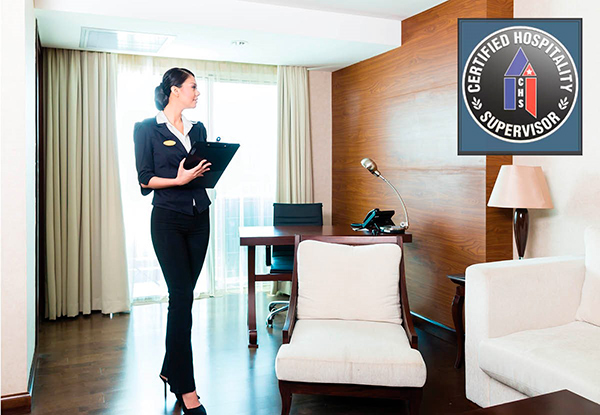
General objective:
This course is designed to provide students with the principles of supervision as they apply specifically to the hospitality industry.
The purpose is to give students elementary knowledge & practice of management issues, including recruitment, training, performance evaluation, supervisory concerns, effective communication.
The students will learn & practice in class different techniques to be ready to face line-manager responsibilities in the first years of their career in the Hospitality Industry.
Course Description:
1. Identify fundamental supervisory responsibilities.
2. Explain the steps that supervisors can take to speak effectively on the job.
3. Describe how supervisors work with the human resources department to recruit new employees.
4. Explain the function of training within an organization and the supervisor’s role in training.
5. Forecast business volume using the base adjustment forecasting method and the moving average forecasting method.
6. Distinguish coaching from counseling and disciplining.
7. Identify the components of a progressive disciplinary program.
8. List important laws and legal concerns that affect hospitality supervisors.
9. Describe issues supervisors should be aware of as they assume the role of team leader.
10. Explain how supervisors can increase employee participation in department activities.
11. Identify steps supervisors should follow during a meeting with employees in conflict.
12. Distinguish high-priority interruptions from low-priority interruptions, and summarize strategies for dealing with the latter.
13. Describe actions that supervisors can take to minimize employee resistance to change.
Explain why it is important for supervisors to take control of their personal development, and describe how to execute a career development plan.
-
- Week 1: Introduction to supervision in the Hospitality industry
Discover today’s corporate environment: globalization, financial statements, the impact of new technologies on the workplace, staff expectations at work
Understand factors influencing HR practice and decisions: Economic pressures, social pressures
Define the specificity of the Hospitality industry: managing service
- Week 1: Introduction to supervision in the Hospitality industry
-
- Week 2: The components of Management
Define HR Planning and understand its main function: the impact on corporate organization, the different components of Management
Power & Empowerment
Leadership styles and motivation
- Week 2: The components of Management
-
- Week 3 : Effective communication
The communication process
Active listening skills and the listening model
The Management interview process
- Week 3 : Effective communication
-
- Week 4 : Effective communication (Part II)
The communication process
Non verbal communication & body language
Speaking skills
- Week 4 : Effective communication (Part II)
-
- Week 5 : Recruitment & Selection Procedures (Part I)
Defining the vacancy
Job description and job specification
Identifying recruitment sources
- Week 5 : Recruitment & Selection Procedures (Part I)
-
- Week 6: Recruitment & Selection Procedures (Part II)
Recruitment methods to attract applicants in the Hospitality Industry
Job ads
Employer branding
- Week 6: Recruitment & Selection Procedures (Part II)
-
- Week 7: Recruitment & Selection Procedures (Part III)
Resume & Application letter
Interviewing Applicants
The selection decision
- Week 7: Recruitment & Selection Procedures (Part III)
-
- Week 8 : Induction program
The last step of a successful recruitment: inducting new employees
Orientation
- Week 8 : Induction program
-
- Week 10: Training (Part I)
The importance of training
Conditions for successful training
Designing a training program
- Week 10: Training (Part I)
-
- Week 11 : Training (Part II)
Training the trainers
The different learning styles
Training within the Industry
- Week 11 : Training (Part II)
-
- Week 12 : Managing productivity & controlling labor costs
HR Key records & statistics
Personnel information & record card
Regular HR statistics
- Week 12 : Managing productivity & controlling labor costs
-
- Week 13 : Performance appraisal
Different approaches to performance evaluation
The aims of performance evaluation
Steps in the Performance Evaluation Process
- Week 13 : Performance appraisal
-
- Week 14 : Health & Safety Definition of health & safety
Characteristics of the Horeca sector
Legal constraints
Safety issues
=> Chapter 8 : Special supervisory concerns
- Week 14 : Health & Safety Definition of health & safety
-
- Week 15 : Special supervisory concerns
Understanding & preventing work-related stress
Sexual Harassment
Bullying
- Week 15 : Special supervisory concerns
-
- Week 16 : Discipline
Purpose of a disciplinary action
Managing the disciplinary process
- Week 16 : Discipline
-
- Week 17 : Managing conflict
Benefits, sources & types of conflicts
Managing an individual conflict
Dealing with criticism
- Week 17 : Managing conflict
-
- Week 18 : Time management
Time management tools
Setting goals and priorities
Monitoring progress
- Week 18 : Time management
Intended learning outcomes:
At the end of the session, students should be in the position to:
- Explain how to recruit operational staff, from job description to post-acceptance letters.
- Set up induction programs for welcoming new employees.
- Set up training programs at the workplace.
- Conduct a management interview with different management.
- Objectives (performance appraisal, managing conflict, setting objectives, delegation…).
- Explain the impact of different management styles on performance and motivation.
- Describe contemporary issues that Human resources have to deal with.
N.B. : L’organisation de certains cours de management peut être modifiée en fonction du calendrier de certains “visiting professors”.
Des travaux en équipe

Des travaux d’équipes pour des projets concrets, avec des planifications rigoureuses nécessitant des connaissances approfondies, toutes dispensées durant le programme.
